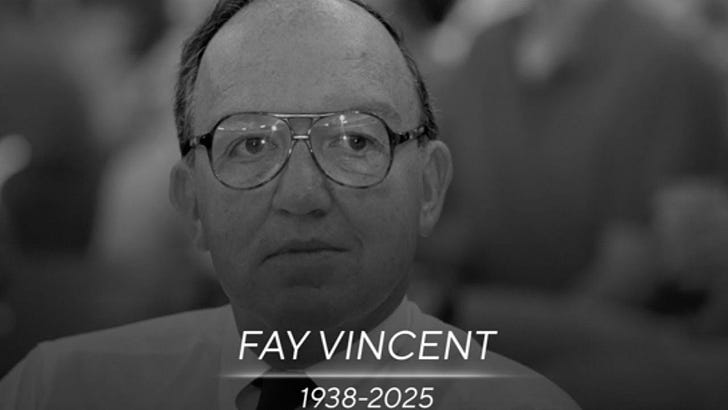Fay Vincent: The Accidental Commissioner
In the midst of a rather hectic sports weekend, I nearly missed the death of former MLB Commissioner Fay Vincent, who passed away Saturday at the age of 86.
Vincent lived a pretty interesting life — before becoming Commissioner, he was the chairman of Columbia Pictures — and he got involved in baseball almost by accident. His friend, Bart Giamatti, had persuaded Vincent to work as his deputy when he became Commissioner in 1989; within six months, Giamatti died unexpectedly of a heart attack, and the job was Vincent’s.
This created a weird situation, where Vincent became Commissioner without really knowing what the job was all about. He seemed to think his role was something like “President of Baseball,” as the guy in charge, the leader whose job was to look out for the best interests of the game. That’s not far from how a lot of the public talks about the MLB Commissioner.
But that isn’t what the job is at all: The Commissioner works for the MLB owners and his job is to do what is in their financial interests, even if that comes at the expense of players and fans. He is “in charge” but only insofar as he protects the owners. Most of Vincent’s predecessors understood this, having had prior experience on baseball’s corporate side; even Giamatti, an academic, got the job thanks to his role fighting a strike by Yale’s clerical workers in the 1980s.
Vincent wasn’t exactly Woody Guthrie — he’d had a long career in corporate America prior to becoming Commissioner — but he never quite learned that he was supposed to kowtow to the owners above all else. In 1990, when owners locked the players out in an attempt to impose a salary cap, Vincent intervened and negotiated a compromise with the union that preserved the season. The owners never really forgave him for that, and they pushed him out within two years. Two years after that, with Vincent out of the way, the owners again sought to impose a salary cap, this time canceling the World Series in their pursuit, as if to illustrate that they did not give a shit about the best interests of the game if it came at the expense of their bottom lines.
This makes it quite hard to evaluate commissioners. We think of them as representing the game itself, but in many ways, the ones who did the most harm to the game itself did the best for the owners they truly worked for: Kennesaw Mountain Landis preserved baseball’s color line for decades; Bowie Kuhn fought to keep the reserve clause; Bud Selig canceled the World Series in an effort to get a salary cap. All three are in the Hall of Fame. And yet Vincent, though not quite forgotten, was mistreated to the extent that he grew cynical about the game.
As Gene Orza, the former general counsel of the MLB Players Association said:
“Fay was a very, very smart guy who made the crucial mistake of thinking that he was more than what the owners wanted him to be. He got to the job thinking he could do great things and transform what was otherwise a rocky relationship and not realizing that the clubs were not interested in that.”
What makes all this especially frustrating is that it would be kind of nice if there WAS someone whose job it was to look out for the game of baseball. There are decisions that ought to be made in the best interests of the sport, and it can be hard to balance the interests of big leaguers, fans, minor leaguers, and amateurs all at the same time. And yet the person “in charge” is the one who is looking after the owners’ wallets. What sense does that make? Given how frequently and obviously the owners’ interests diverge from that of the game itself, it’s impossible to explain this as anything but an absurd ideological commitment to the interests of the capitalist class…


